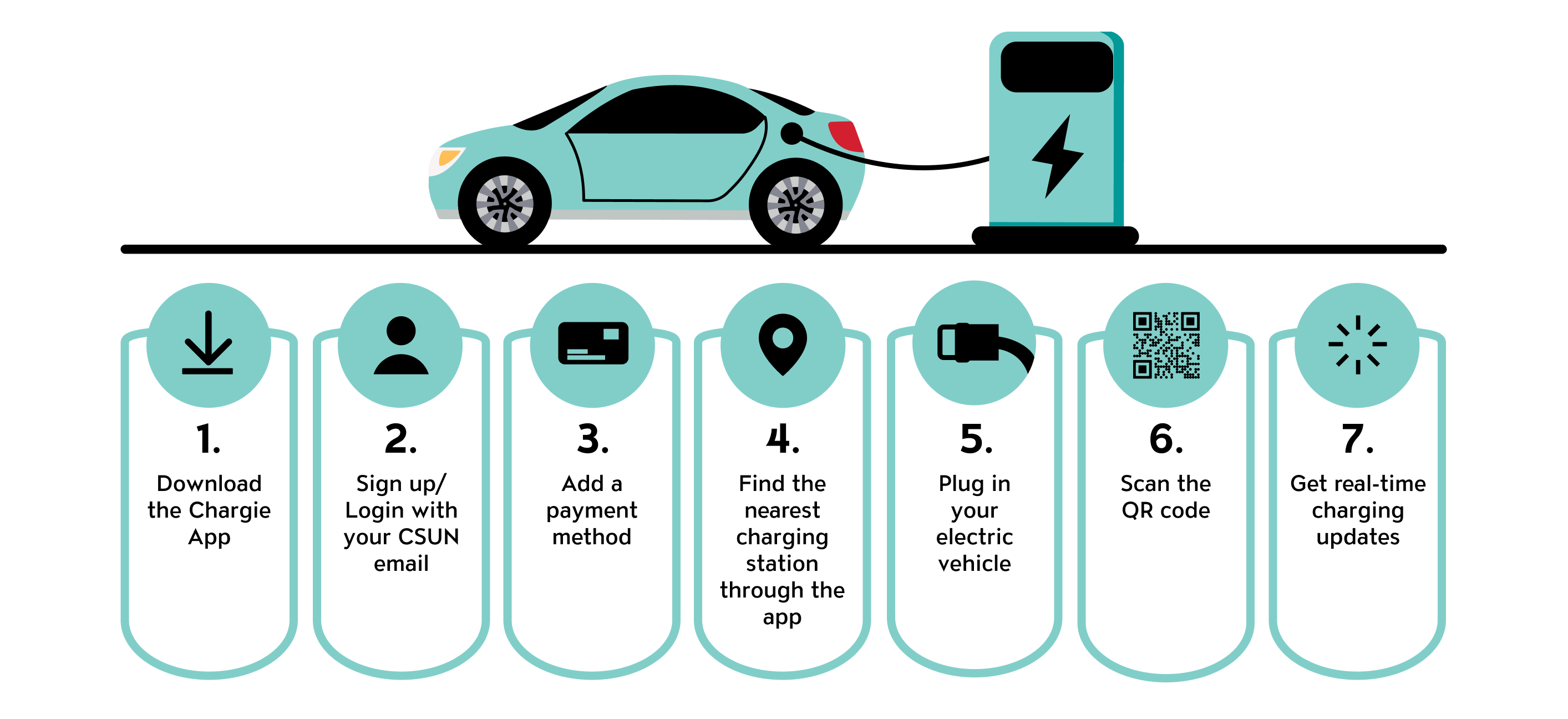California State University, Northridge (CSUN) is currently expanding its present network of electric vehicle (EV) charging stations on campus. EV commuters will soon have access to 90 convenient charging stations in total, as all current Level 2 and Level 3 chargers are being replaced with new “smart” chargers. Installation is expected to be completed by the end of March 2022, and the new system platform will be “powered by Chargie,” the largest installer of EV charging stations in Southern California.
Through the easy-to-use Chargie smartphone app, CSUN students, faculty, and staff can set up an account and payment method, preload funds, scan the QR code of the corresponding station, and follow the charging status of their vehicles in real-time.
Although campus EV chargers are no longer free to use, the cost to you is the same blended rate CSUN pays per kilowatt-hour. This fee helps CSUN cover a portion of the operational costs of these chargers.
EV Charger Installation Locations and Permits Accepted
- Online:
- B2: 8 chargers - Employee parking permits only
- B6: 4 chargers - Any Employee/Student parking permit
- G3: 4 chargers - Any Employee/Student Parking Permit
- G6 Parking Structure: 40 chargers - No Unit 3 parking permits allowed in parking structure / Students and EB Employee parking permits
- G9 Parking Structure: 4 chargers - No Unit 3 parking permits allowed in parking structure / Students and EB Employee parking permits
- B4: 8 chargers - Employee parking permits only
- B5: 10 chargers- Any Employee/Student parking permit
- F2: 8 chargers - Any Employee/Student parking permit
- F5: 2 DC fast chargers - Any Employee/Student parking permit
- E6: 2 chargers - Employee parking permits only
EV Charging Locations
A map with the locations of the CSUN EV Chargers can be found by clicking the link below.
EV Charging at CSUN Powered by Chargie.
How Chargie works:

DOWNLOAD THE CHARGIE APP
FAQ

